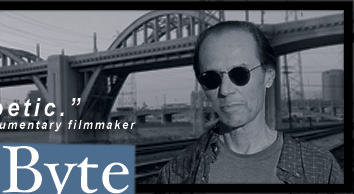
 |
A Duck’s Worth of Existential Dread
I won Donald playing a midway game called "Pet Store" at the 1956 Devonshire Downs San Fernando Valley Fair. If your ping pong ball toss landed in one of a table full of jars filled with water, you won a goldfish. If your toss landed in the golden jar, you won the grand prize — a baby duck. Donald was my first duck — domesticated, Jemima Puddle stock, standard issue, white feathers, orange bill. Though not an original name, Donald was, at the time, contemporary for a duck. In the 1950s, a duck named Donald was the equivalent of a pet platypus today named Perry. There’s been Webby Vanderquack Quackerjack, Daisy, Huey, Dewey, Louie and their lost brother Phooey, Baby Huey, Daffy, Doodles, Howard, and Deadeye, but Donald Duck will always be my number one. He was my first close bird friend and had the run of my parent’s house and yard. He’d watch TV with us — read the paper, go swimming in my wading pool, play ball with my cocker spaniel George. When my Dad came home from work, Donald would run out to our gate with George to greet him. Donald even laughed with me at the shortcomings of my elders. Though I’m pretty sure there’s no connection, it was around the time that I met Donald that I begin to experience my first feelings of existential dread. Yeah, I was precocious, but big picture responsibility — questions like "Who am I?" and "Why am I here?" — held a fascination for me. Donald however, didn’t think much of my effort. After all, existentialists and ducks aren’t birds of a feather. Ducks are indifferent about the shortcomings of ethics and science. Even though they’re all about experience, dread isn’t something a duck does. “What’s the point of dread,” Donald would ask me. “Especially dreading freedom?” I didn’t have the heart to tell him. Eventually, Donald got a bit too rambunctious and messy for my parents house. In spite of my objections, they gave him to my Uncle Jack who lived down the road in Van Nuys. “When we go to see Jack,” my parents said, “you can visit Donald.” Like Donald, Uncle Jack wasn’t an existentialist. Rather than trying to find out who he was or why he was here, Jack was a hands-on guy. He built his house, restored Model A Fords, grew orchids. He also had a pool and a huge yard with plenty of room for Donald to roam. Fair enough. I scheduled my reunion with Donald a couple of weeks later when my parents visited Uncle Jack for a meat and potatoes meal. Dinner was first on the agenda. I cleaned my plate and was well-behaved and quiet at the dinner table looking forward to meeting up with my duck friend again. “Time to do the dishes,” Jack said. I grabbed a towel and started drying. “How did you like dinner?” Jack asked. Before I had time to answer Jack added, “It was that duck you gave me.” I remember the room going cold and empty — changing from color to black and white. Like Tamora at the deception of Titus, I had eaten the flesh that I myself had bred. Donald was in my stomach. I was digesting my friend. That Donald was merely a duck, that my parents were pissed at Jack, that Jack was a Pennsylvania hillbilly pragmatist — all these things were true. But somehow, there was something else in the room that Sunday other than my family, evidence and ethics. “The reason there’s a rush of fear when you stand near the edge of a cliff,” Donald once said to me, sarcastically, “is not because you’re afraid of falling. It’s because you’re afraid you’ll jump.” Today, when I visit Irvine Park I always say hello to the ducks. I don’t so much think about Donald, as I laugh with my friends at the shortcomings of my elders. — Nathan
Callahan © NathanCallahan.com / Nathan Callahan / all rights reserved |
Broadcasting Fridays at 8:50 am from KUCI 88.9 fm Orange County, California
|